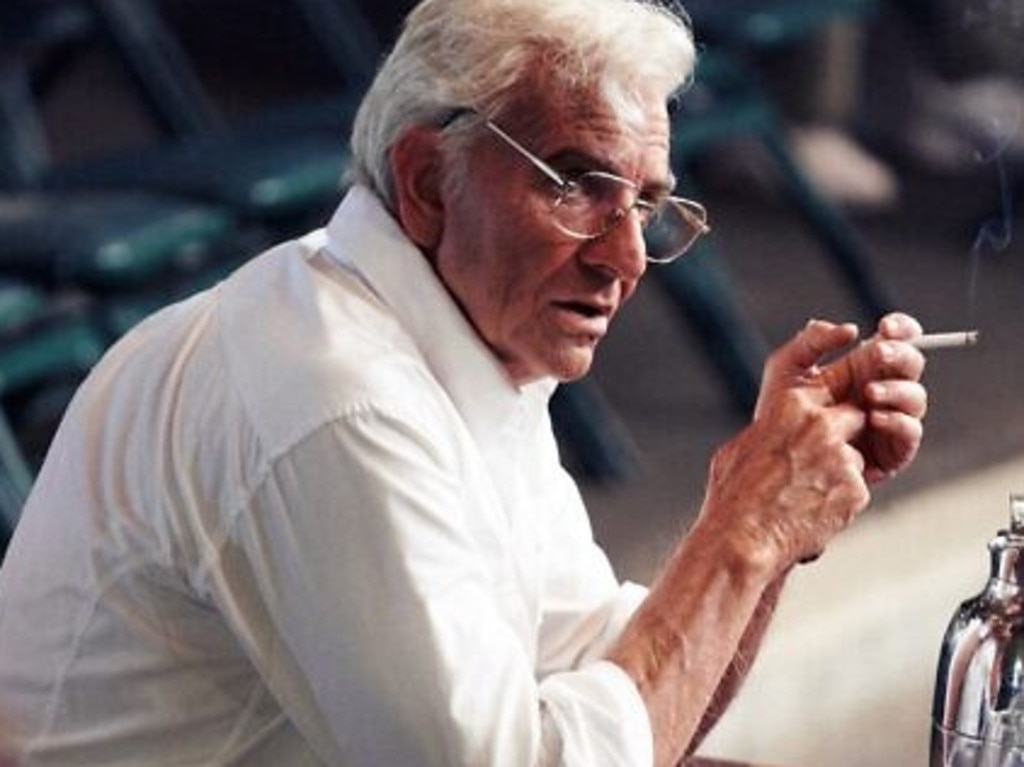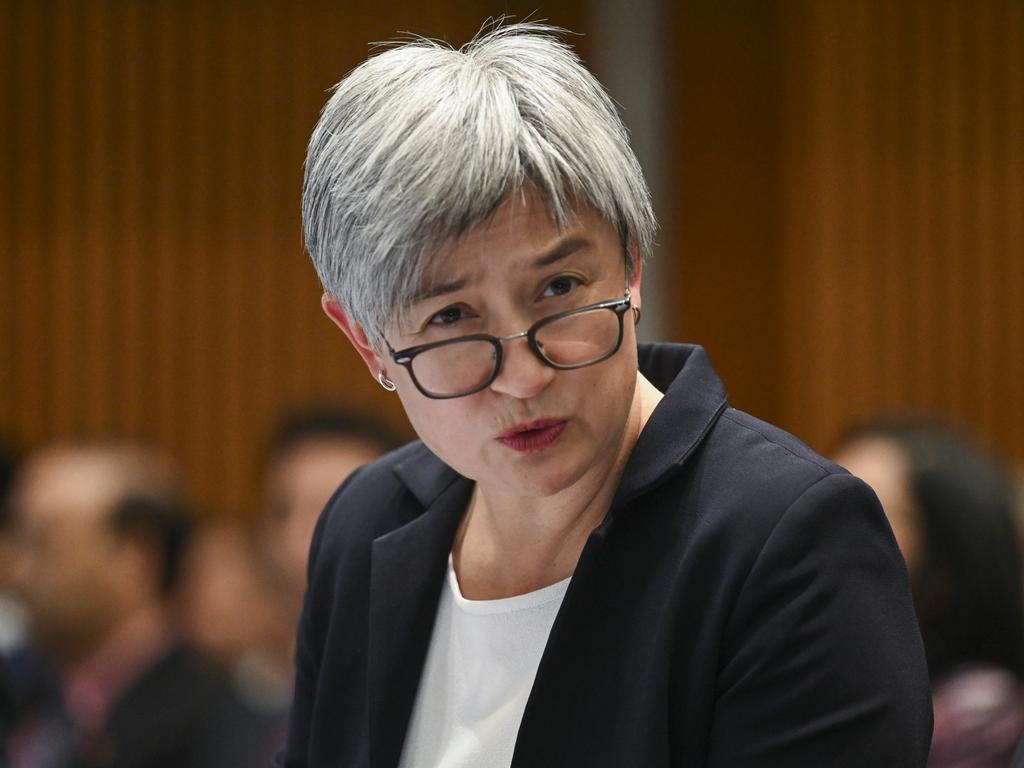‘Golda’ review: Helen Mirren as a woman at war
The Oscar winner is unrecognisable in her role as Israel’s iron lady, Golda Meir, with a makeup job so prominent that it’s almost as if she’s wearing a Halloween mask.

The 1973 Yom Kippur War exists in memory as a relatively straightforward victory for Israel 19 days after a simultaneous attack by Syria and Egypt on either side of it. But the war’s conclusion was anything but foregone, and the sobering biopic Golda revisits those tense days with a visceral and admirable sense for how overwhelming it is to lead a nation through war.
Framed by a post-war investigatory commission that grilled Golda Meir, the Israeli prime minister from 1969 to 1974, the film reminds us that though she, only the fourth woman elected to lead a country, is remembered as a hero, she was the source of considerable controversy at home. Opponents argued during and following the war that Israel’s Iron Lady waited too long to mobilise, failing to heed warning signs. The film, which is respectful but not hagiographic, suggests instead that Meir’s performance throughout was solid.
Helen Mirren stars in the title role, but she is nearly upstaged by her co-star, which is the heavy layer of prosthetics on her face. So prominent is this makeup job that it’s almost as if Ms Mirren is wearing a Halloween mask. A lighter touch might have been less distracting, though one does get used to the effect as the film goes on. If it’s Ms Mirren’s goal to disappear, the mission is accomplished and then some. It’s difficult to spot any trace of the Oscar-winning actor, who also transforms her voice to match the gravelly tones of the imperious premier, a chain-smoker with an almost ludicrous attachment to cigarettes who even lights up on a hospital gurney as her lymphoma is being discussed. It’s a marvellously self-effacing performance, free of flourishes or preening.
Ms Mirren simply is Meir, a Milwaukee-reared, Kyiv-born woman whose face is etched with the memories of a thousand fights. She’s old enough to remember when Cossacks would kill Jews for sport, and is disinclined to heed the urgings of Henry Kissinger (Liev Schreiber) to take it easy on Egypt lest she draw the Soviet Union into the conflict.
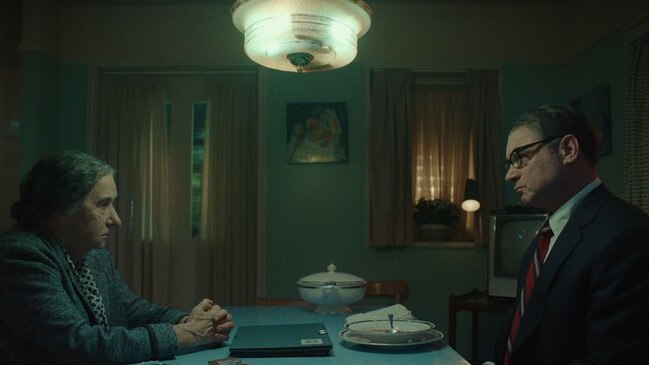
Joining a movie trend toward summing up a famous person by focusing on a single determining period, Golda takes place almost entirely in October 1973, a moment director Guy Nattiv re-creates in all of its brown-and-beige dinginess. Meir learns at the outset that, although Egypt appears to be mobilising, it has done so more than 20 times in that year. Moreover, feints are an established tactic of Israel’s Arab antagonists, who understand that a small country’s economy can be severely damaged by constant mobilisation. One of her top military advisers swears an attack can’t be imminent because of the omniscience afforded him by his surveillance systems: She learns only much later that they had not been switched on when the attack was about to launch.
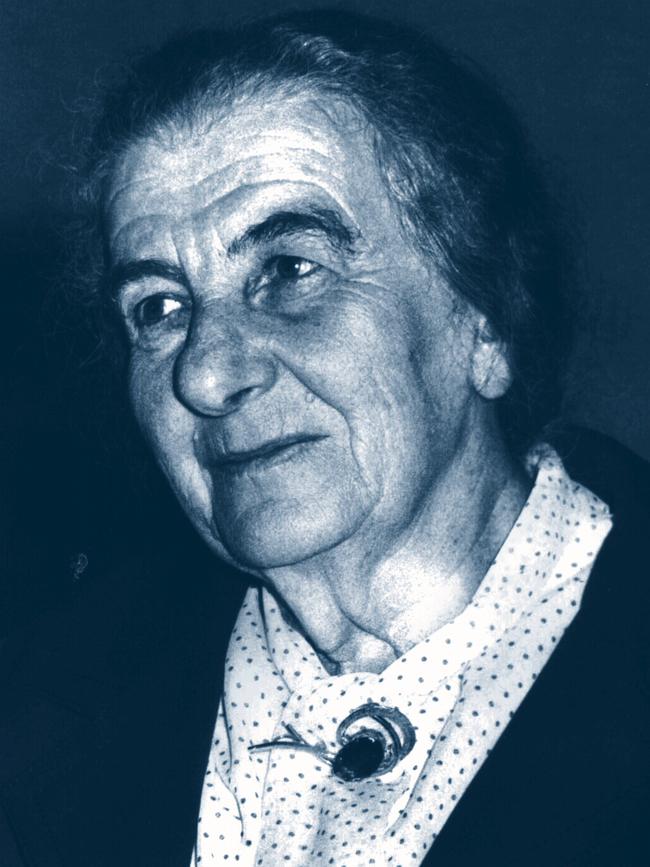
Nicholas Martin’s script eschews stirring speeches and heroic posturing in favour of such critical fog-of-war minutiae, showcasing how leaders in Meir’s position often find themselves with no good options. As a forward Israeli position is overrun by a superior Egyptian force, her military advisers tell her to hold back on a counter-attack because that is exactly what the Egyptians hope for. And so she listens in horror to radio transmissions as the troops are simply slaughtered. One of them is the son of a typist who works for her; the detail brings home how small the country is.
Yet Mr Martin also brings off lighter moments, such as when Kissinger tells Meir that he’s an American first, secretary of state second, and a Jew third. “You forget,” she replies, “that in Israel we read from right to left.”
Though the contours of its story are fairly standard statesman-at-war drama, Golda is unusually blunt about the internal devastation that comes with overseeing military operations.
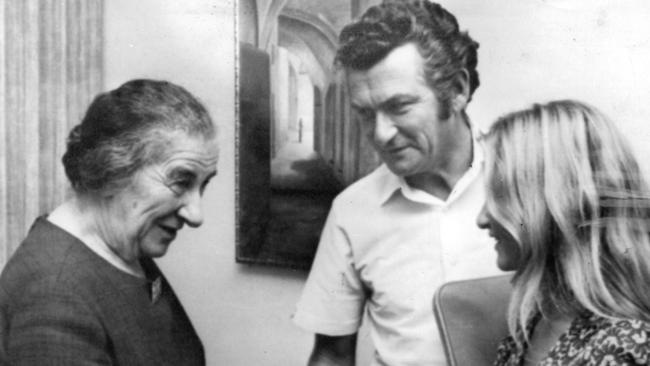
Mr Nattiv and Mr Martin stay in the meeting rooms instead of visiting the battlefields, which ensures there is nothing that could be mistaken for a rousing action sequence, and they are far less interested than most makers of such films in painting their subject as a master strategist for whom conflict brings glory.
Even a brief, victorious war brings a cascade of horror. Ms Mirren’s Meir follows the audio and video feeds of the climactic tank battle – an audacious move across the Suez Canal and into Africa – with such intensity that this scene becomes a nerve-twisting illustration of how even the best days at battle can be utterly exhausting.
Ms Mirren and the film do us all a service in declining to paint Meir as a legendary figure but instead observing that although she was a strong leader who can rightly be credited with saving her country from annihilation, crisis forced her to make gruelling decisions whose psychic burdens she bore heavily. No wonder she smoked so much.
The Wall Street Journal

